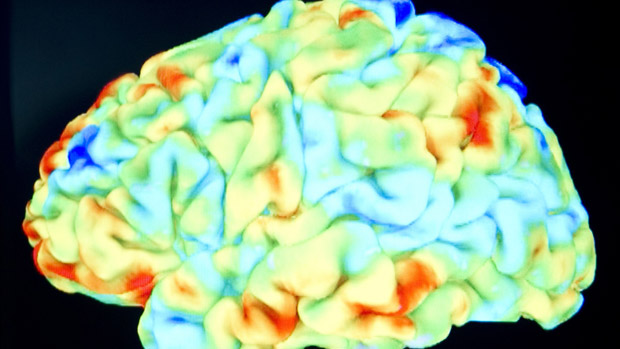Link found between social status and brain structure
Study suggests adult brain cortical matter may be reshaped by factors such as employment and education

A free daily email with the biggest news stories of the day – and the best features from TheWeek.com
You are now subscribed
Your newsletter sign-up was successful
The structure of adults’ brains may be affected and changed by the individual’s socio-economic status, new research has found.
Previous studies have demonstrated that a developing child’s “brain function can be adversely affected when the child is raised in an environment lacking adequate education, nutrition and access to healthcare”, reports Eureka Alert. The new study, published in the journal Proceedings of the National Academy of Sciences of the United States of America, is the first to look at the effects of these factors on the adult brain.
"We know that socioeconomic status (SES) influences the structure of the brain in childhood and older age, but there’s been a gap in the research,” said Dr Gagan Wig, who co-authored the paper. “We wanted to see if there were relationships between SES and the brain across a wider range of adulthood.”
The Week
Escape your echo chamber. Get the facts behind the news, plus analysis from multiple perspectives.

Sign up for The Week's Free Newsletters
From our morning news briefing to a weekly Good News Newsletter, get the best of The Week delivered directly to your inbox.
From our morning news briefing to a weekly Good News Newsletter, get the best of The Week delivered directly to your inbox.
The scientists, from the University of Texas at Dallas, looked at the brains of around 300 adults between the ages of 20 and 90. Each individual’s socio-economic status was approximated using methods that “combine education and a measure of occupational prestige”. The networks and thickness of cortical grey matter in their brains was also examined using MRI scans.
The researchers found that among the middle-aged subjects, those with higher “status” had networks that were more efficiently organised, and their cortical grey matter was thicker, The Independent reports. Those from lower socioeconomic backgrounds tended to have a thinner cortex, which is associated with problems later in life including memory loss and dementia.
Dr Wig said: “What makes these results more striking is that the individuals we studied were predominantly above the poverty line. This provides evidence that socio-economic status-brain relationships are not limited to individuals at the extreme ends of socio-economic status, but are present across a broader socio-economic status range.”
A free daily email with the biggest news stories of the day – and the best features from TheWeek.com
-
 Jeff Bezos: cutting the legs off The Washington Post
Jeff Bezos: cutting the legs off The Washington PostIn the Spotlight A stalwart of American journalism is a shadow of itself after swingeing cuts by its billionaire owner
-
 5 blacked out cartoons about the Epstein file redactions
5 blacked out cartoons about the Epstein file redactionsCartoons Artists take on hidden identities, a censored presidential seal, and more
-
 How Democrats are turning DOJ lemons into partisan lemonade
How Democrats are turning DOJ lemons into partisan lemonadeTODAY’S BIG QUESTION As the Trump administration continues to try — and fail — at indicting its political enemies, Democratic lawmakers have begun seizing the moment for themselves
-
 Home Office worker accused of spiking mistress’s drink with abortion drug
Home Office worker accused of spiking mistress’s drink with abortion drugSpeed Read Darren Burke had failed to convince his girlfriend to terminate pregnancy
-
 In hock to Moscow: exploring Germany’s woeful energy policy
In hock to Moscow: exploring Germany’s woeful energy policySpeed Read Don’t expect Berlin to wean itself off Russian gas any time soon
-
 Were Covid restrictions dropped too soon?
Were Covid restrictions dropped too soon?Speed Read ‘Living with Covid’ is already proving problematic – just look at the travel chaos this week
-
 Inclusive Britain: a new strategy for tackling racism in the UK
Inclusive Britain: a new strategy for tackling racism in the UKSpeed Read Government has revealed action plan setting out 74 steps that ministers will take
-
 Sandy Hook families vs. Remington: a small victory over the gunmakers
Sandy Hook families vs. Remington: a small victory over the gunmakersSpeed Read Last week the families settled a lawsuit for $73m against the manufacturer
-
 Farmers vs. walkers: the battle over ‘Britain’s green and pleasant land’
Farmers vs. walkers: the battle over ‘Britain’s green and pleasant land’Speed Read Updated Countryside Code tells farmers: ‘be nice, say hello, share the space’
-
 Motherhood: why are we putting it off?
Motherhood: why are we putting it off?Speed Read Stats show around 50% of women in England and Wales now don’t have children by 30
-
 Anti-Semitism in America: a case of double standards?
Anti-Semitism in America: a case of double standards?Speed Read Officials were strikingly reluctant to link Texas synagogue attack to anti-Semitism